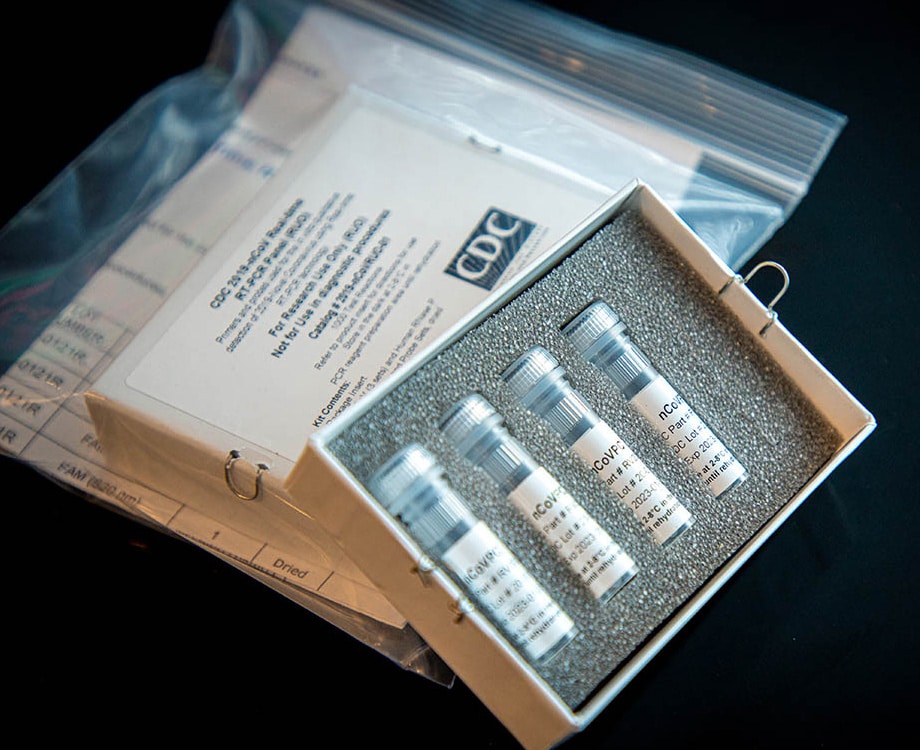Stephen Wagstaffe, the district attorney of San Mateo County, California, said in 2014 that he has never made a decision as a prosecutor that he did not believe in. Given his 44-year career as a prosecutor, that’s a lot of decisions to pour through. But surely none quite like DA Wagstaffe’s recent decision to hide the fact that a prosecutor in his office contracted coronavirus.
The prosecutor’s husband was tested first, and both she and her husband isolated themselves after his result came back positive, but reportedly not until after the prosecutor handled some legal matters without precautions. University health departments recommend that employees tell their bosses if there is even a risk they may have contracted the virus, and that they wear masks at work, if not stay at home entirely.
DA Wagstaffe originally told about 30 members of his own staff about the situation—but not hundreds of others who may have come into contact with her at the courthouse. Quizzed by local paper the Mercury News, he claimed that it was for the public health department to determine if it was anyone else’s business.
That is not how Charles Smith, a county public defender who was exposed to Wagstaffe’s sick deputy prosecutor, feels. Now in isolation as the father of an eight-month-old, Smith said that in just one hearing he saw her conduct recently, the prosecutor could have exposed up to 20 people in the room, before walking past “hundreds of jurors” on her way to a second hearing in the building.
So why fail to disclose this important public health information? It could be that these prosecutors were afraid of “letting people off the hook” due to the pandemic—just as Los Angeles District Attorney Jackie Lacey recently told the Guardian.
But California has abolished the statute of limitations for the most serious crimes, including murder, various types of sexual assault, and even some embezzlement offenses. Speedy trial requirements have also been largely suspended by the California Judicial Council in late March. As usual, prosecutors can either dismiss charges and later reindict if the courts are too clogged currently, or keep the charges and ask judges to refuse pretrial release for people indicted on serious charges and deemed a public safety risk. It is therefore hard to imagine what legal matter Wagstaffe could have seen as important enough to justify the risks of non-disclosure.
While it is difficult to conclusively say that DA Wagstaffe is any less transparent than the average elected head prosecutor of an urban county, his record, like his 2014 statement, suggests that he believes he is always correct and that his ethical judgments should never be challenged.
As chief deputy district attorney in 2009, Wagstaffe described a state ballot initiative to prioritize treatment over incarceration for low-level drug charges as a “get out of jail free card.” Then, right before he waltzed into the vacated DA seat unopposed in 2010, Wagstaffe was personally named by the US Court of Appeals for the Ninth Circuit for illegally striking Black jurors for racist reasons. Wagstaffe said after that he did not “think you can find anyone, anywhere who would ever question my integrity”—a statement that earned him the mockery of at least one law blog.
Days after taking office as DA, Wagstaffe told Mercury News that prison reforms might embolden people who use drugs to continue to use drugs, because if “people don’t think there is a consequence, they will not participate in treatment.” Several years later, Wagstaffe complained about California’s Proposition 47, which downgraded some nonviolent felony charges to misdemeanors, claiming that it caused a lot of “cut and release” instead of putting people in county jail, despite there being “plenty of room in the inn.”
If DA Wagstaffe’s rationale for keeping the pandemic-exposed prosecutor at work was essentially to be “tough on crime,” he should admit it, so the public can fairly judge his decision. While one can imagine Wagstaffe putting down anyone who expresses a healthy dose of doubt, a responsible public servant would honestly inform the public of what could have been more important than stemming the tide of a pandemic. Instead, his radio silence is yet another example of how elected US prosecutors have near-endless authority and almost no accountability.
Photo of COVID-19 test kit by the CDC via Wikimedia Commons/Public Domain.





Show Comments